What is really in that rain water?
I was told recently that the reason that city water doesn't seem to sustain plants as well as rain water is because of the presence of hydrogen peroxide in rain water. I have never heard this before and wondered if it's legit. Does anyone know of any additive to put in the water, such as in the hose feeder, that would make the water more suitable? During such hot weather, it seems that no matter how much I water, the plants are longing for something else...... and I already luv em ok.
Comments (46)
mrsboomernc
18 years agowhen i was young, and *knew everything*, i thought my mother was crazy when she'd say hose water is a poor substitute for rain. now that i'm middle-aged and "crazy", i'm reminded with every rain how right she was.
Related Professionals
Clemson Landscape Architects & Landscape Designers · Fort Lee Landscape Architects & Landscape Designers · Rossville Landscape Architects & Landscape Designers · Stamford Landscape Contractors · Aberdeen Landscape Contractors · Berkley Landscape Contractors · East Haven Landscape Contractors · East Patchogue Landscape Contractors · Hickory Hills Landscape Contractors · Indio Landscape Contractors · Madera Landscape Contractors · Point Pleasant Landscape Contractors · Rockland Landscape Contractors · Suitland Landscape Contractors · Wilsonville Landscape Contractorsmrsboomernc
18 years agoi don't think there's any confusion about the premise that rain is better than city water.
trianglejohn
18 years agoBut there is a problem if you plan on collecting rainwater that runs off your roof. Most roofs have asphalt shingles and most of them leach some pretty harsh chemicals when it rains. There are a few plants out there that can't handle common tap water chemicals like flouride or chlorine even in trace amounts.
alicia7b
18 years agoI have rain barrels that collect rain off the roof and I haven't had a problem. My roof is very steep, so the only thing I occasionally get is some grains from the shingles, which don't seem to add enough to the water to do anything to the plants.
lynnencfan
18 years agoWhat has really fascinated me over the years is rain lillies (zephyranthes). You can water and water them and you will get no blooms - get a good rain and they just come alive with blossoms. I never did understand that until I took the Master Gardening course and we discussed it and determined that there are just natural nutrients in rain water that spur the blooms - in other words - "all watering is not equal"
cribscreek
Original Author18 years agoIt does seem like someone, a chemist maybe, would come up with something we could hook up to our miracle grow feeder and put those nutrients back into the water. Hmmmmmmm. Oh, i forget, im not a chemist lol.
alicia7b
18 years agoI remember DH told me he read somewhere that there is nitrogen in rain water -- perhaps that's the difference.
trianglejohn
18 years agoThe local gardening hot-shot also told me about Zephyranthes not being fooled by hose watering so I never tried to encourage them to bloom. Then just a few months ago Carl Schoenfeld of Yucca-Do Nursery gave a lecture at the Raulston Arboretum showing slides of his plant collecting trips into Mexico and of his wonderful collection of species and hybrid Rain Lilies. He said that if you really soak them you CAN fool them - that is the amount of soaking not the quality of the water. I went home and drenched a pot of mine and they did bloom. Mr Schoenfeld is like the god of rainlilies.
nberg7
18 years agoI always thought there was an extra kick of nitrogen in rain water too! Not only must the chlorine stress plants, but I'm sure flouride isn't too swell for them either. I have a hunch this is why so many houseplants get sick and croak. I now make a point of running outside with my Boston ferns every time it's raining. I even have my kids trained now to set them out if I'm not home and they're doing spendidly for the first time in my life!
-Nanjanandalan
18 years agoYes, rainwater contains hydrogen peroxide. It's a result of water falling through the ozone found in the atmosphere. Rainwater does indeed benefit plants more than standard tap water. See linked article.
......JanHere is a link that might be useful: hydrogen peroxide in rainwater
cribscreek
Original Author18 years agoThank you, Thank you, Thank you Janandalan
Now if any of you wizs out there can figure out at what ratio to use it in the Miracle Grow feeder, we are in business!!
I can see it now: Headlines Read: HYDROGEN PEROXIDE MYSTERIOUSLY FLYING OFF OF CAROLINA'S STORE SHELVES.
cribscreek
Original Author18 years agoHere is a pasted in portion of that article referred to above. Very Interesting.
Helps Plants
It is this hydrogen peroxide in rainwater that makes it so much more effective than tap water when given to plants. With the increased levels of atmospheric pollution, however, greater amounts of H202 react with air-borne toxins and never reach the ground. To compensate for this, many farmers have been increasing crop yields by spraying them with diluted hydrogen peroxide (5 to 16 ounces of 35% mixed with 20 gallons of water per acre). You can achieve the same beneficial effect with your house plants by adding 1 ounce of 3% hydrogen peroxide (or 16 drops of 35% solution) to every quart of water you give your plants. (It can also be made into an excellent safe insecticide. Simply spray your plants with 8 ounces of 3% peroxide mixed with 8 ounces of white sugar and one gallon of water.)alicia7b
18 years agoThat's interesting. Now I hope we get a little rain in the next few days, with temps up to scorch again this weekend!
cribscreek
Original Author18 years agoAlicia, I can't help but think that its worth a try to see if it will make my plants do better during dry and hot spells here. I'm going to experiment with it and see what happens, if nothing else, I will learn something I didn't know before lol.
peri__n_eal
18 years agoI think you need to understand the purpose of that linked article above before you read any "benefit for plants" into it. It is trying to convince you that peroxide is natural and safe enough that humans should ingest it.
The benefit of rain water on plants is that it has less chlorine and fluorine than tap water....and a few trace nutrients as a result of pollution. There might be some miniscule amounts of peroxide, but peroxide is extremely unstable especially in sunlight and breaks down into water.
If I had a sick plant with an external bacteria or mold problem, I might try spraying with a 1/3 solution of peroxide.
...but to spray dry but healthy plants in hope of improving them is likely to stress them even more. Peroxide is not a plant nutrient. It is an oxidizing agent the same as chlorine....and plants don't live on oxygen.Maybe the idea that it is good for plants came from the fact that EPA has approved its use in pesticides....when really the idea is that it doesn't do much harm to plants..or people..see link below.
Someone cautioned about using rain water from roof runoff. Some new roofs use a zinc strip to retard mildew growth on shingles. I think it is the zinc that leaches into the water that can be a problem-----otherwise you can use it.
Here is a link that might be useful: peroxide and plants
cribscreek
Original Author18 years agoInteresting Perineal, but at the same time, since there is obviously something in that rainwater that makes the plants do better, it might just be a start to a common easy solution to add to water that will solve the problem. I think Nitrogen would probably influence it also. Maybe many components. I've heard that you can get mineral dust at a local rock quarry, and maybe adding some of that to the water might help. I would also like to know if there is any additive (other than sunshine) that would knock out the chlorine and floride.
MylesM_discovery_co_za
16 years agoPeroxide is singlet Oxygen and water. should be called hydrogen dioxide (red tape gets in the way of this due to the commercial side of science wanting to keep people in the dark ages and exploit them medically with petrochemical derivatives , otherwise called pharmaceuticals). aerobic (viruses aren't aerobic) living things need oxygen as a disinfectant. It is good for you too, not just your plants. dilute to about 0.5% (Safe bet) for you plants. I bath in it (500ml of 12% per bath). and drink it(up to 60 drops of 12% in a glass of water, three times a day. start at 12 drops and work your way up day by day). and put it (0.2%) in my ears to instantly stop approaching flu (it fizzes lots, but don't be scared, it's safe and clears you sinuses). One can even take it intravenously (0.15% H2O2, 5% dextrose (keep your sugar levels up), 2mg magnesium chloride (stops you veins from healing\scabbing) in 250ml water. Once a week, for 4 weeks) for cancer therapy. The only downside is it's cheaper than chemo. Much cheaper. Unfathomably so.
We don't breathe enough nowadays, plus there is a lot less to breathe (In terms of Oxygen). Every time anything burns, or breathes (animals, not plants though), there is immediately less O2 around (As it forms compounds with the burning substances). Plants reverse this process, as we all know. This is why cities have little oxygen. Think of the damage we've done to our own environment in the past 100 years in terms of O2 depletion.. Yes, rain contains peroxide. It is the worlds cheapest and most potent disinfectant, Our bodies have been using it since bacteria (Not viruses!) started breathing.. H2O2 promotes the resession of cancer. cancer doesn't like breathing, as this kills it. It's most likely cause is a lack. look into anaerobic sugar-metabolism if you are curious. Your city plants will love highly diluted peroxide. Rainwater is the best, though. it contains lots, so instead of simulating it, use it. Just thought i'd say something on the topic of peroxide, as you doctor (dealer/runner) won't.
Ps. make sure you get food grade peroxide if you plan on ingesting it, as this way you can be sure it contains no potentially harmful stabilizers.Here is a link that might be useful: One of many pages on the topic
wildlifegarden
16 years agohi all, what a great thread! I have been wondering this myself. I have one thought maybe you guys can clear up....dont you think that rainwater has (forgive me if I choose the wrong words) ions from the clouds like I heard are in the air at niagra falls and seem to make everyone there feel extra happy????
michelle
jqpublic
16 years agoAlso for what its worth...when it rains it is cloudy and the temps drop to relatively comfortable readings for an extended period of time. Instead of the rain getting sucked in and evaporated right out it soaks in deeply and stays there longer??
aisgecko
16 years agoAnd (while this other stuff may be valid, I wouldn't know) when it rains you get complete coverage. So half an hour of rain is a good soaking, whereas an hour under a rotary sprinkler is barely enough.
dottie_in_charlotte
16 years agoWondering if stored rain water loses any of its chemistry in storage?
zigzag
16 years agoProbably, Dottie - doesn't everything deteriote w/age (me included!)? And then there's always the debate over outgassing from plastic containers - like rain barrels - and yada, yada, yada ....
Sometimes ya' just gotta' pick your battles, do your best and rise above all the scientific studies. Mother Nature had things well under control before we humanoids started messing up the planet. I just try to do the best I can, as do all the rest of the GWC folks !
alicia7b
16 years agoI have heard of people adding hydrogen peroxide to stored rain water, but I don't do it -- the plants seem fine...
legacy77a
16 years agoWhat about well water? Since it is not treated with any chemicals, is it the same as rain water?
dellare
16 years agoI have well water. Doesn't seem to do the same thing as a good rain no matter how much I water. Adele
tamelask
16 years agoditto- we have well water, and rain is sooo much better. even a skimpy rain seems to do more than a good soaking with a hose.
so, what about rain barrels? because if it really is the whole hydogen peroxide thing, it would evaporate, right? so the rain barrels shouldn't do as well, either, in that case, but if it's because of micronutrients, than i'd think it would. perhaps it's a combo of everything together- maybe like so many things the whole is greater than a simple sum of the parts (temp, micronutrients, h2o2,lack of chems etc, ).
dottie_in_charlotte
16 years agoThe farmers I've known have said that regular rain isn't as good as rain from a thunderstorm. Something about the ozone from the lightning.
jrcan
16 years agoDon't forget about pH. City water typically has a pH of 9 or 10 to prevent bacteria as well as rust in older pipes in the system. You can test your tap water for pH useing a simple fish tank tester. Our water in Rock Hill is a solid 10, when we lived in S. Charlotte is was 9. Remember, pH has a direct effect on nutrient intake and over time watering your plants with a high pH water will effect the pH of the soil..
I grow citrus trees in containers and they like a low pH level so I have determined through testing that 9 drops of sulfuric acid added to a gallon of water brings it down to around 5.8 to 6. I have done this for years and my citrus trees have done great. You can buy the sulfuric acid also at the pet stores, it is called pH down and is used to lower the pH in fish tanks.
John
sachita
15 years agoI made two 55 gallon rain barrels and hooked them up to my downspouts. One on each side of the house. With our first rain they were both almost 3/4 full. But I noticed my water is brown. Is this normal? I do have asphalt shingles. Not sure if I should be using the water for the plants. Any advice or suggestions?
basil_davis2
15 years agoWhat is the smell when it rains?
Does watering with hose smell the same as the smell when it rains?
I have read that rain makes the air have more negative ions which may be good for us and maybe for plants.
If the air smell different when rain than when hose watering, why?aezarien
15 years agoWe have a turtle and his water has to be checked for PH at least once a week. Oddly enough our county water always tests as neutral.
All kinds of neat things happen during a rain that cause a variety of smells. Chemical reactions occur, the soil "opens up" and releases a variety of things including bacteria and minerals, the ph of the rain causes plants to release chemicals, the rain reacts with some of the chemicals from plants and other chemicals on the ground, bugs let off odors, and other interesting things occur. The humid air is an aroma enhancer and carries those scents through the air better and.... the humid air tends to open up your sinuses.
My hose water always smells like... the inside of a hose. ;)
lylesgardens
15 years agoOne would think that well water would be "cleaner" than rain water OR house tap water, since it is essentially filtered through tons of dirt which removes any sort of chemicals or impurities. Long gone are the days when you could visit your local cold water creek and actually drink the water right out of it. I used to do that when I lived in MA. as a kid we would visit the local brook and go trout fishing, and could drink the water right out of it when you were thirsty, good and cold. That same brook is now polluted from run off of surrounding new community streets, as well as the main road, and from it's tributaries. The fish are far and few between I am told now.
Quite sad really, that area used to be loaded with lady slippers.
Lyle
brenda_near_eno
15 years agoClouds are pure water vapor - nothing else - formed by distillation of water up from earth. Water is H2O. Peroxide is H2O2, which can form and breakdown in small amounts within water, without anything added externally.
Rain can contain anything that rain falling downward can pick up from the air. Picking up environmental pollutants that lower pH is what causes "acid rain", for example. So chances are great that your rain has a quite different composition from your gandmother's rain. And it might not be good.
Rain off a rooftop will pick up "stuff" from the rooftop, but most of it should be pretty harmless and minimal, unless it's a brand new roof material, or an old degrading roof material.
I personally would not ingest hydrogen peroxide from the drugstore. It's not tested by the FDA, so there is no guarantee that minor, harmful contaminants are not present. Of course, that's true of vitamins as well, and I do ingest those.
There's a saying among environmental chemists that probably makes sense for this thread: Dilution is the Solution.
dobber_2009
15 years agoFirst, rain and clouds are not "pure water vapor". Rain and snow both may contain a variety of nutrients: phosphorus, sulfur, ammonium, nitrate, even metals like iron and manganese. Second, H202 (peroxide) cannot spontaneously form in 100% pure water, it requires a further oxidant (such as carbon dioxide).
Third, on an earlier post linking to an "article/opinion page" on hydrogen peroxide in rainwater; over 99% of gut microbes are anaerobes, not aerobes. Only in the lowest portion of the colon are their significant aerobes. The majority of these anaerobes are beneficial for nutrient uptake in the gut. Yes, anaerobes do cause intestinal issues--but you flush them all out you are also killing your ability to uptake nutrients and manufacture vitamins.
Fourth, it is correct that the smell of ozone is strong after a thunderstorm, contributing to that fresh smell. However, the strongest scent comes from geosmin, an oily compound produced by soil bacteria that is released after a rain. The human nose is very sensitive to this compound (able to detect the substance in concentrations as low as one part per trillion). That smell will be present whether watering with a hose or after a rain.
Stored rainwater will likely lose a proportion of nitrogen due to a growing microbial community that will convert any ammonium and nitrate to nitrogen gas, which will be lost to the atmosphere.
Rainwater and snow both contain significant numbers of bacteria (snow is nucleated largely by a plant pathogen). Estimates range from 1,000 to 1,000,000 bacteria per mL of water. These bacteria can be carried huge distances by wind and end up condensing with moisture into precipitation. Dust carried from China deposits bacteria into precipitation in the U.S., for example.
Frankly, I see no benefit of hydrogen peroxide on plants. If your intention is to kill the microbial community that co-exists beneficially with the plant roots, then douse the plants with H2O2. The reason it bubbles when you place it on a wound is due to a catalase enzyme in bacteria (and human cells as well) that decomposes the H2O2 to water and oxygen. So, you are not only killing bacteria, but also your own cells.
Just some thoughts
dottie_in_charlotte
15 years agoThankyou,dobber. I love the science explanations.
I guess we can conclude that city water, especially in summer with its higher chlorine content, is only good for moistening the soil so your lawns stay alive.
We all probably should be investing in rain barrels.A question to dobber..would adding surfectants to rain barrel stored water be useful? I do that sometimes when the ground is really dry to make the water absorb faster rather than running off.
"surfectants" being a few drops of detergent to 5 gal pail of water.GreenfingerGene
12 years agoIt has been raining hard today in the Triad. I got bored. I found this thread. I am glad it is raining! I know my windmill palms love it.
I hope my basement does not flood.
wertach zone 7-B SC
12 years agoThanks for finding this GreenfingerGene! Very interesting. I have a well and city water. I have noticed well water does better on my garden than the city water. But rain trumps them both, hands down!
I have a rain barrel on my tin roof barn and it does better than the water from my shingle roof house barrel. But still not as good as even a light sprinkle of rain!
gusolie
12 years agoFalling rain also is bombarded by the nitrogen and carbon dioxide molecules in our atmosphere (72% of the air we breathe is nitrogen).
The result is all rain that falls being ever-so-slightly acidic in pH and contains a basic "fertilizer":
As rain drops drop through the air, carbon dioxide is trapped and carbonic acid is formed (H2-CO3)
Lightning helps fuse nitrogen and oxygen atmosphere gases into nitric oxide (N-O) that quickly becomes a more stable nitrogen dioxide (N-O2) in the air. Nitrogen dioxide in the air is is trapped/absorbed by rain droplets and dissolves/degrades to simple hydrogen atoms (H) and nitrate (N-O3).
KatyaKatya
12 years agoI am still inclined to think that there are chemicals in tap water that are not present in rain water and it makes tap water less beneficial than rain water, rather than the other way out. But what is more important, plants react to rain differently. Plants react to environmental signals. When they "know" it is raining, they react to air humidity, soil nutrient availability, what have you, and you see them grow and develop at an appropriate rate. A very prominent example of that is this lily species mentioned here, she reacts to the rain signal but not to a human with a watering can. When you water them, the signal is absent or at least present at a much lower level. Of course, it does not mean that we should stop watering. It is just that rain is really good for plants.
dottie_in_charlotte
12 years agoI'm on well water now.
Would it be safe to say that except for trace metals and some dissolved minerals, that well water is depleted in nitrogen and oxygen as it percolates through the soil?Would a nitrogen additive and an aeration process in the rain barrel improve the water quality closer to rainwater?
MasterWork3
8 years agoWe were raised in the country, chopped wood for the stove & had acres of our own gardens. Mom caught water from the tin roof for house plants. All done by hand & plowed once a year by a local farmer.
Question is what isn't in the rain water? Most of the time Man makes things that aren't truly made for the body nor plants. Yes they may make them grow faster but not better. I also forgot to mention my mother has sold home grown produce for 39 years. And has made a booming business out of it, still selling under her umbrella in Valdese NC. And they are better than anything you can find on shelves or even the farmers market. Why? Natural fertilizer (leaves & other natural compost), old seeds from before big company's demand grow faster & bigger plants. Faster is not better. What does this have to do with rain. Everything. Water has to get far enough away from Man to become what it's truly meant to be, what we call rain.
We can only dissect the scientific words, to feel like we have a substance caught in our thought box. It's not going to happen. You will only get so far. Even that name of substance can be different from the next, even though they have the same name. There are things that are natural that we can't explain. Like how classical music helps plants grow. Environment. My mother is a very positive & a nurturing person which I believe makes a difference in growth.
Final statement ,
I Believe RAIN is a result of Water leaving the earth to return in a form suitable for life.Kirks window cleaning
7 years agoI am a professional window cleaner and have my own practice. I remove hard water staining. That being said your water that has minerals in it is well water city water irrigation water it comes from the ground and Carries minerals in it, it has enoug minerals to sustain plants, but if you use purified water, reverse osmosis water or diozionized water it will eventually kill the plant because the minerals are filtered out, and best for window cleaning because it won't leave water deposits on the glass. Rain water is pure water the evaporation process only take the water not the minerals thats why it leaves a stain behind in the evaporation process. Rain water doesn't stain the glass on windows because there is nothing there n it unless smog is in the air or the air is dusty, or windy. Rain water is useless to water plants it will eventually kill them . Your well water will a good it has many minerals in it . I have burned minerals off glass with acid and you can smell the minerals like sulfur, alkaline, calcium, salt, potash or Kenite.
Seysonn_ 8a-NC/HZ-7
7 years agoInteresting thread.
Rain water is almost pure H2O, unless the air is polluted with industrial chimney stacks that produce thing like Sulfuric acid (acid rain ).
A benefit of rain water when there is lightening is that it can contain Hydrogen Peroxide ( H2O2) which is said to be beneficial to plants. But then if it rains too much, it can cause some of the nutrient to leach beyond that reach of some plants roots.
HU-412824606
3 years agolast modified: 3 years agoUse distilled water to water plants thats what rain water is and then it contains h2o2 amonia nitrates and is acidic so that trace elements in soil are produced by the acid converting them in to bio available elements read the top link i am goin to go to distilled water and you need to wash the leaves so they work better at converting carbon dioxide into carbohydrate sugar for the food they need from photosynthesis and..................................... my dying tomato just got rained on for 5 days in a cyclone and now has started new growth got flooded in pot could not lose more water than was going into pot so i dont think rain water will kill my plant eventually if anything tap water will kill it and tap water is not underground bore or river water full of minerals its processed with all the additives mentioned and that kills the plants, but i did grow passionfruit very well once and every week used thaose microbe producing fertilizer and only used rain water from tank they grew very well and the fertilizer i did every week 3 different kinds microbe seasol powergrow or something and a very expensive one cant member it. So RW was Best on that plus the best Fertlizer you can give and manage to do every week. if i had a swimmin pool i would drain it and use it for RW and then keep that for watering instead of swimmin but if you add the chlorine and acid to keep algee away you could filll drums from that let the chlorine evaprate off for a week then use it and swim in pool and when it rains it will top the pool up.
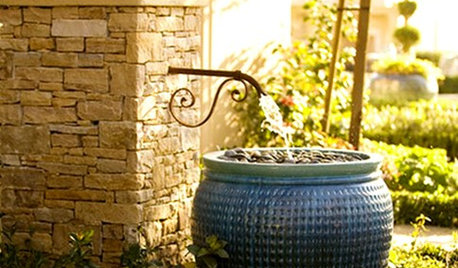
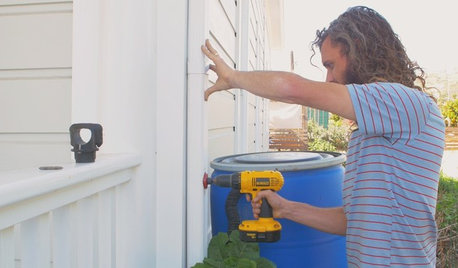
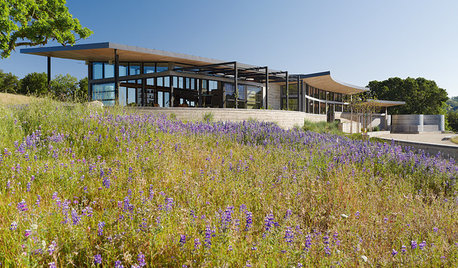
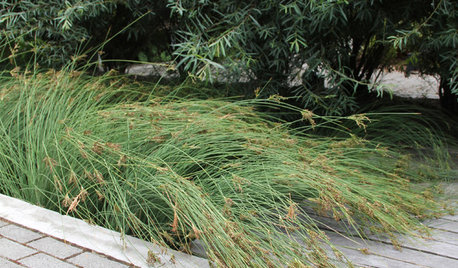
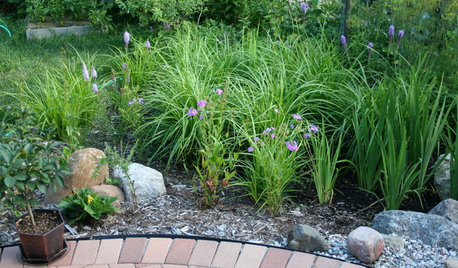
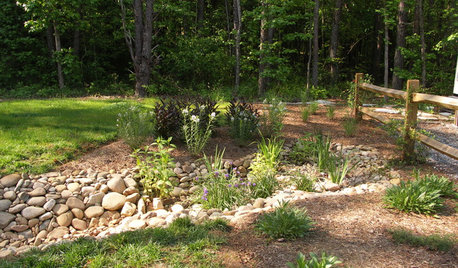
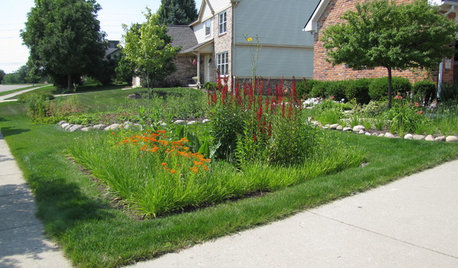
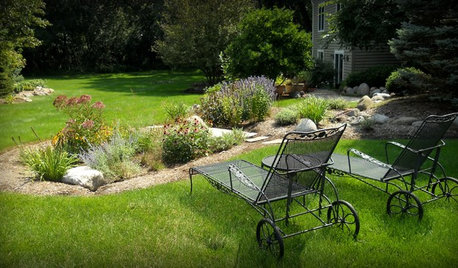

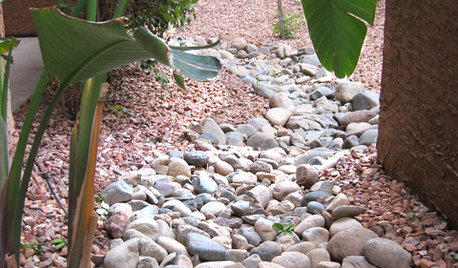






peri__n_eal